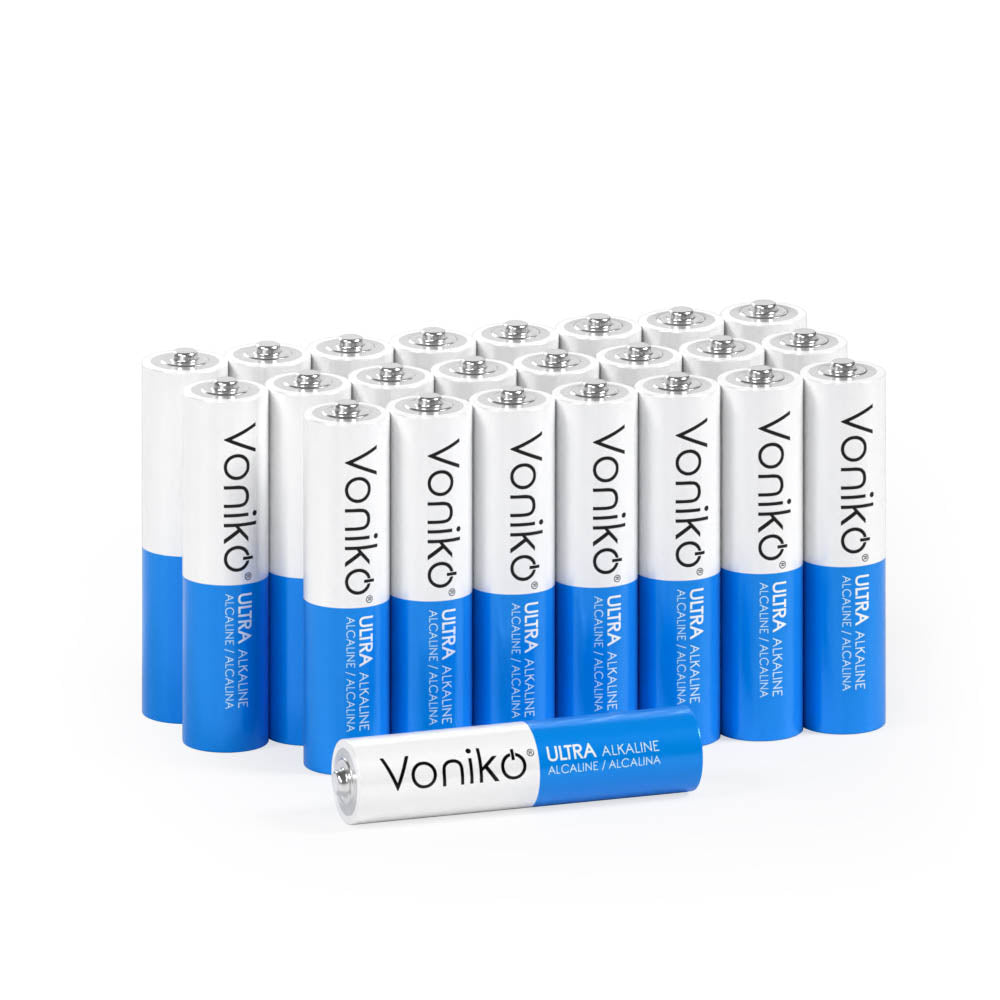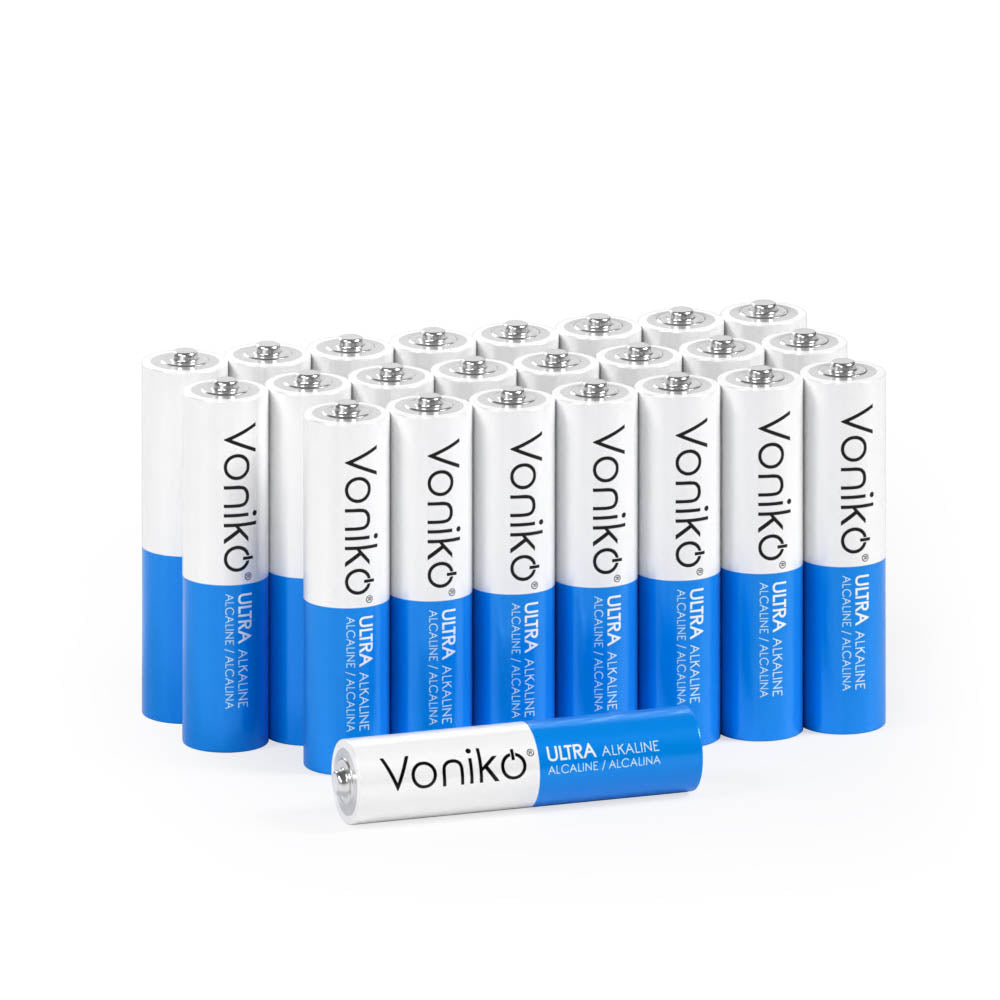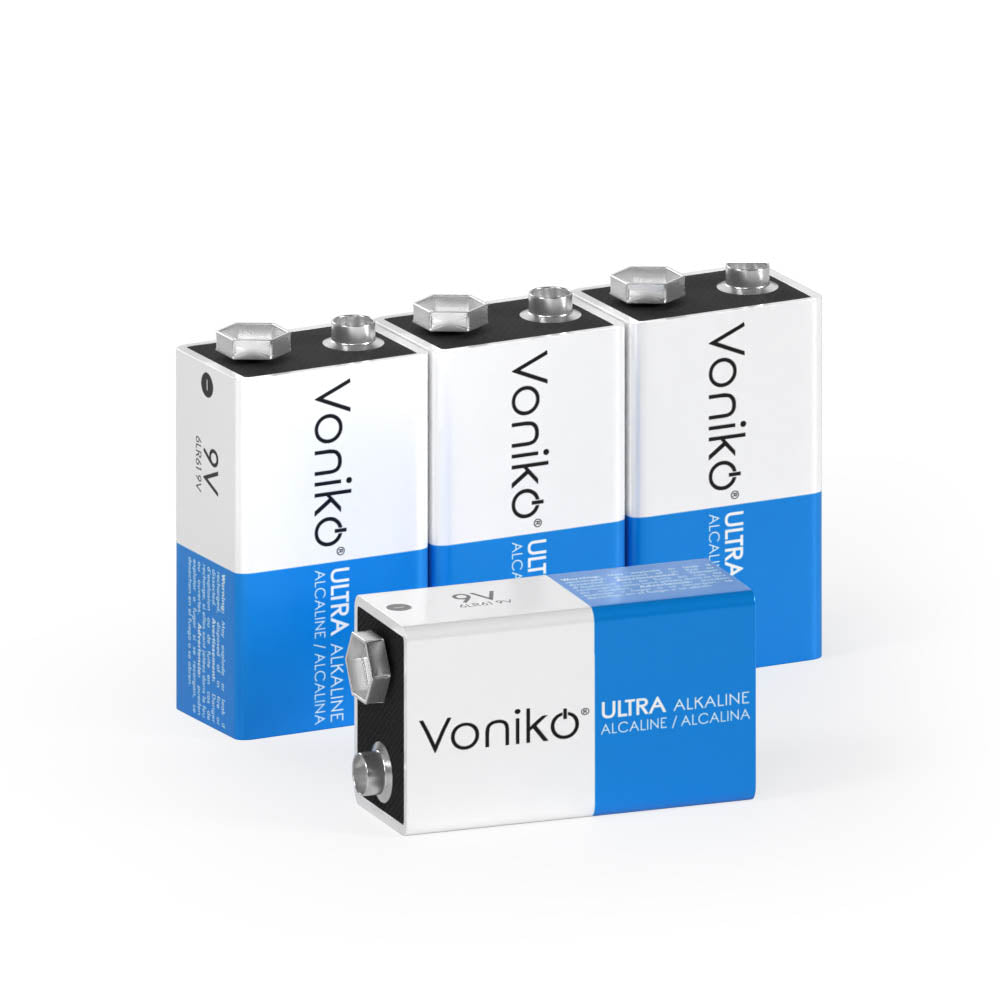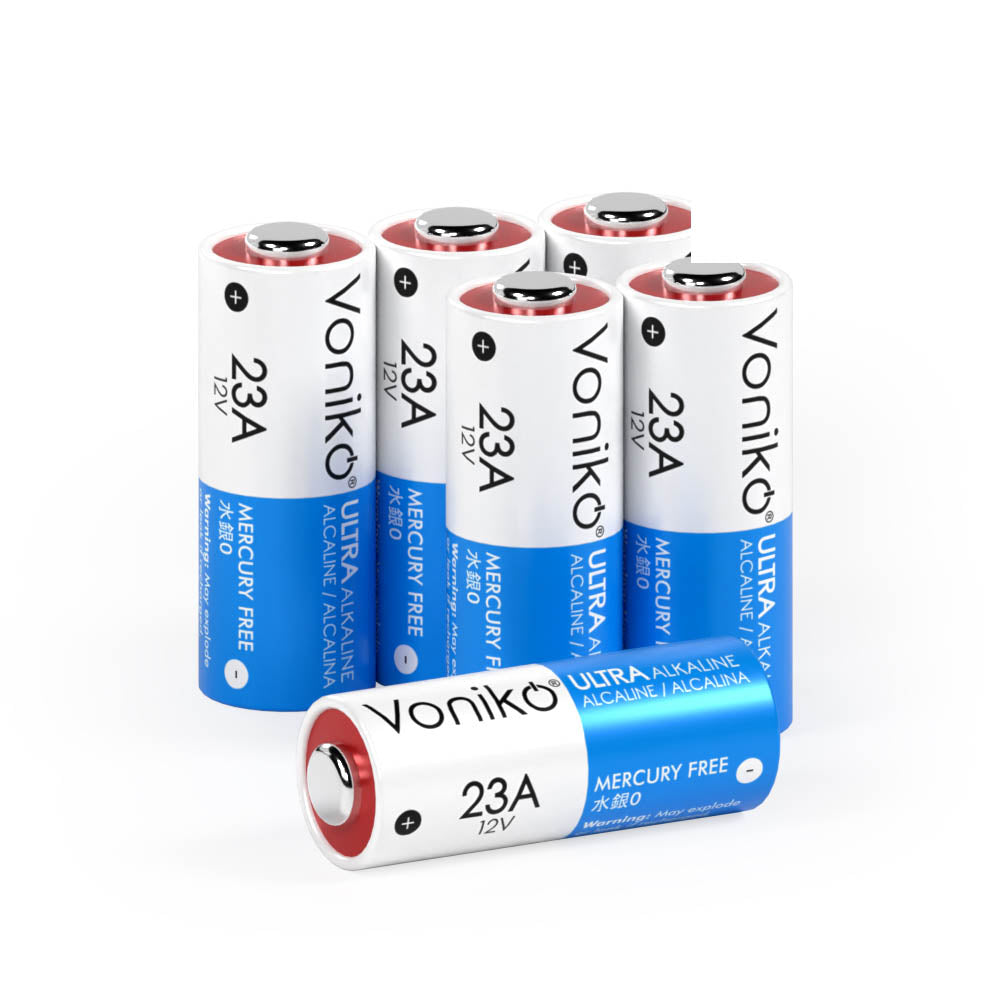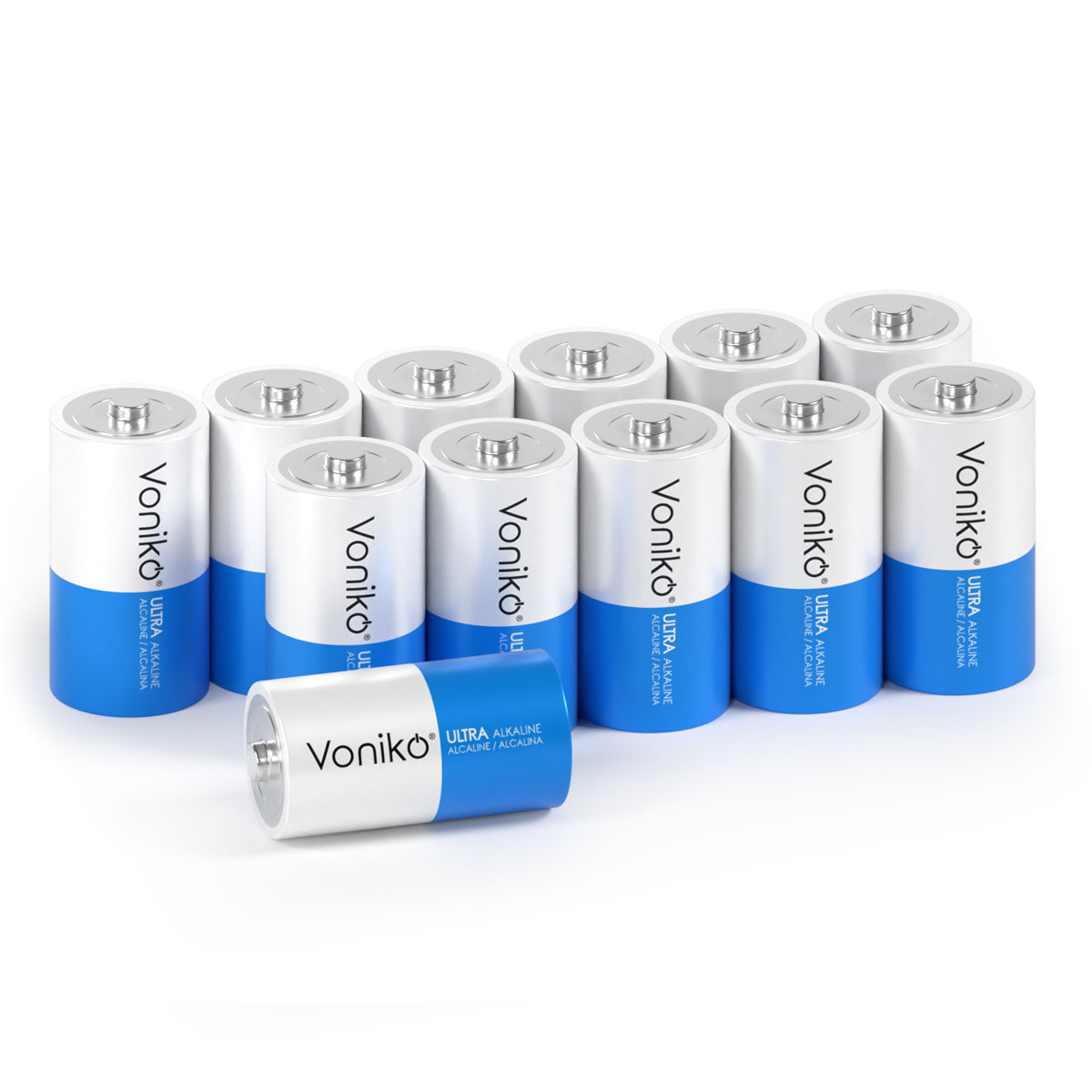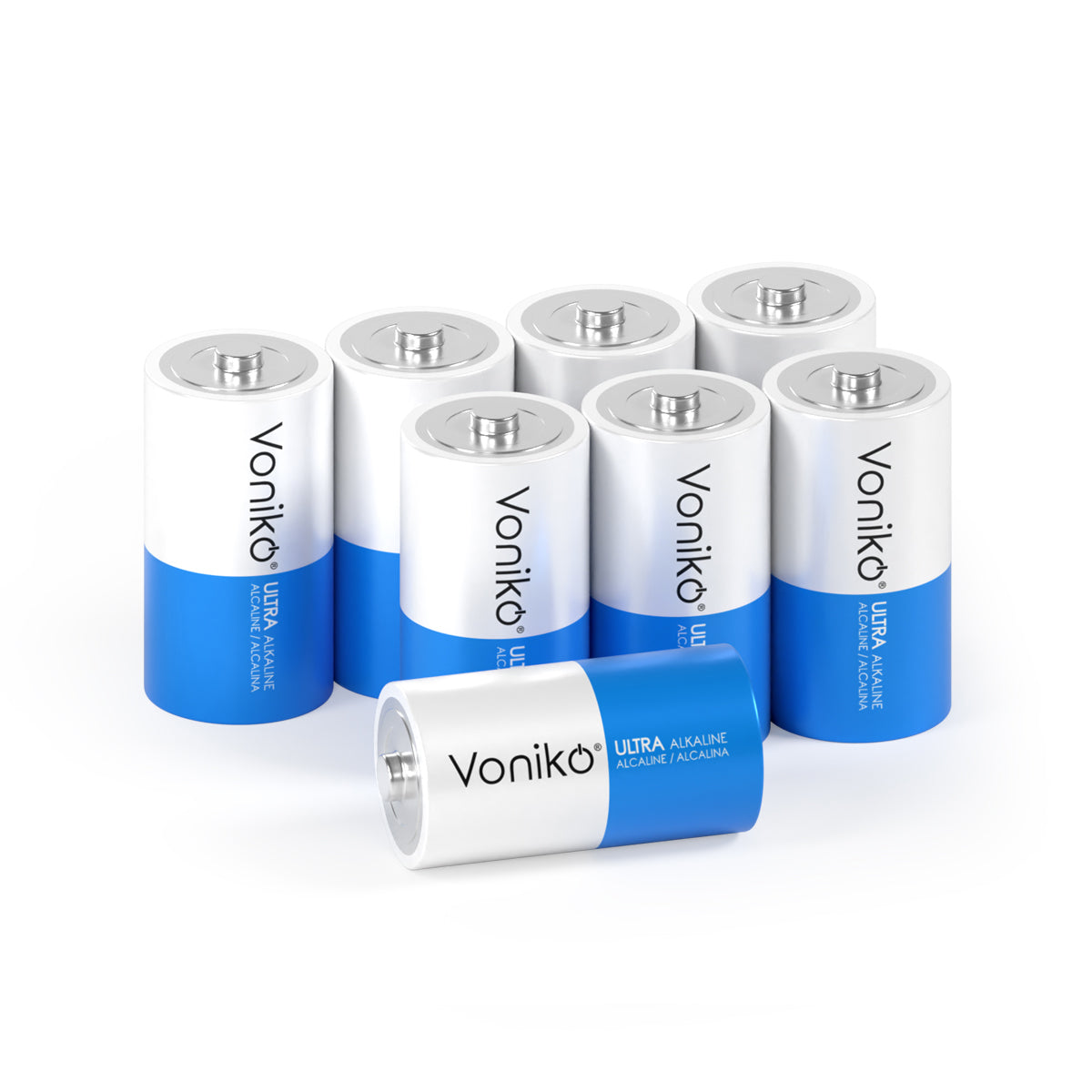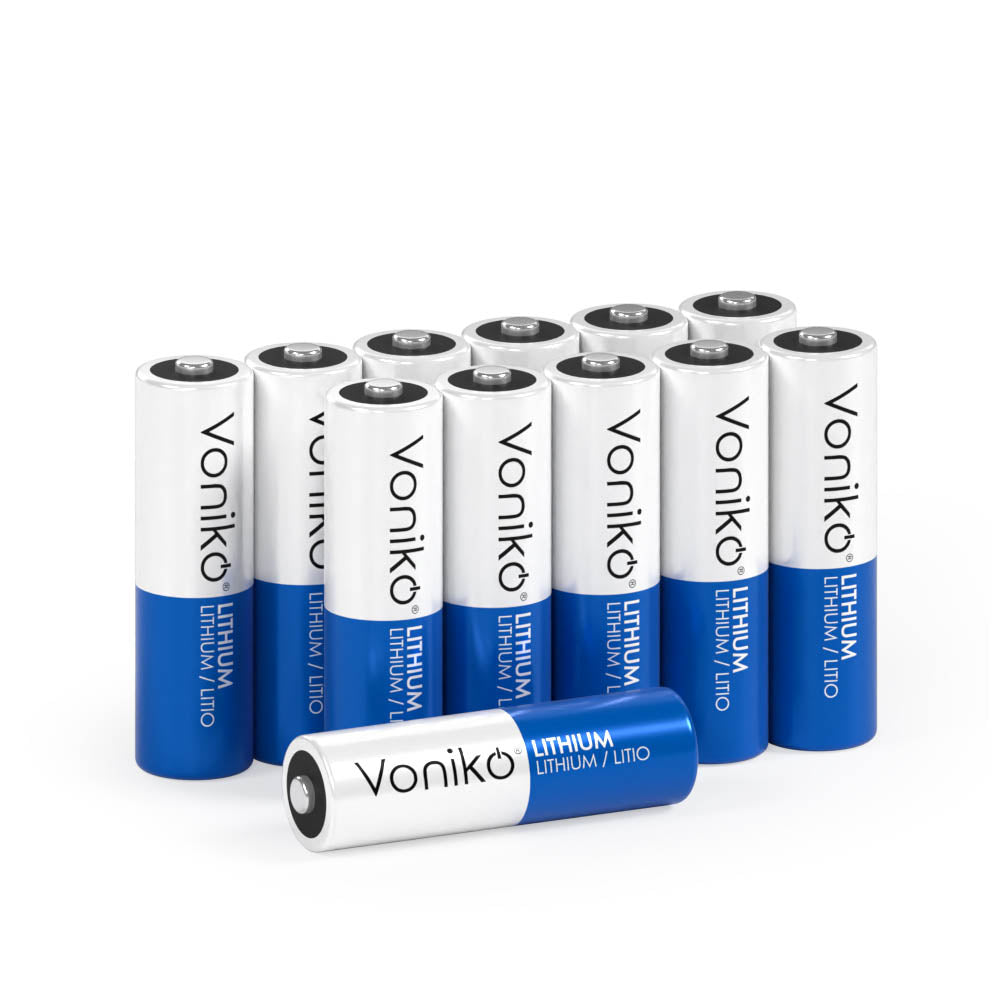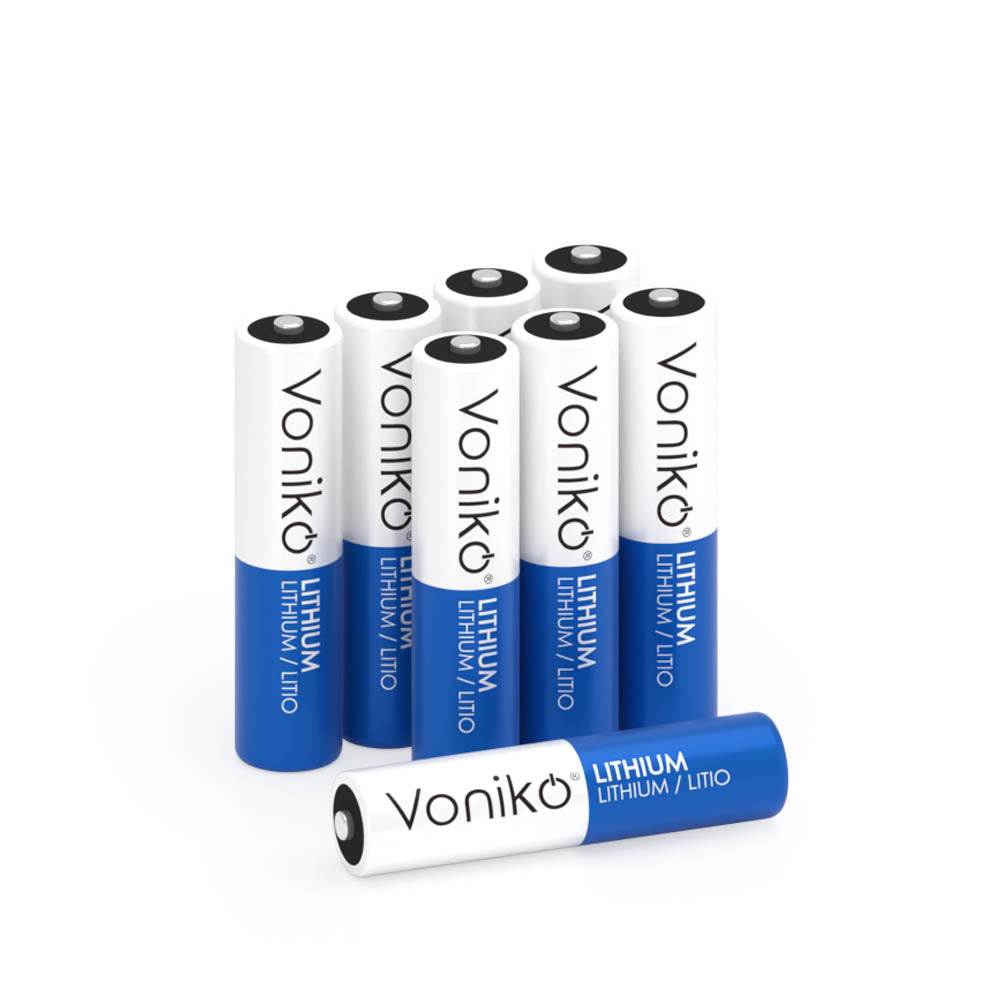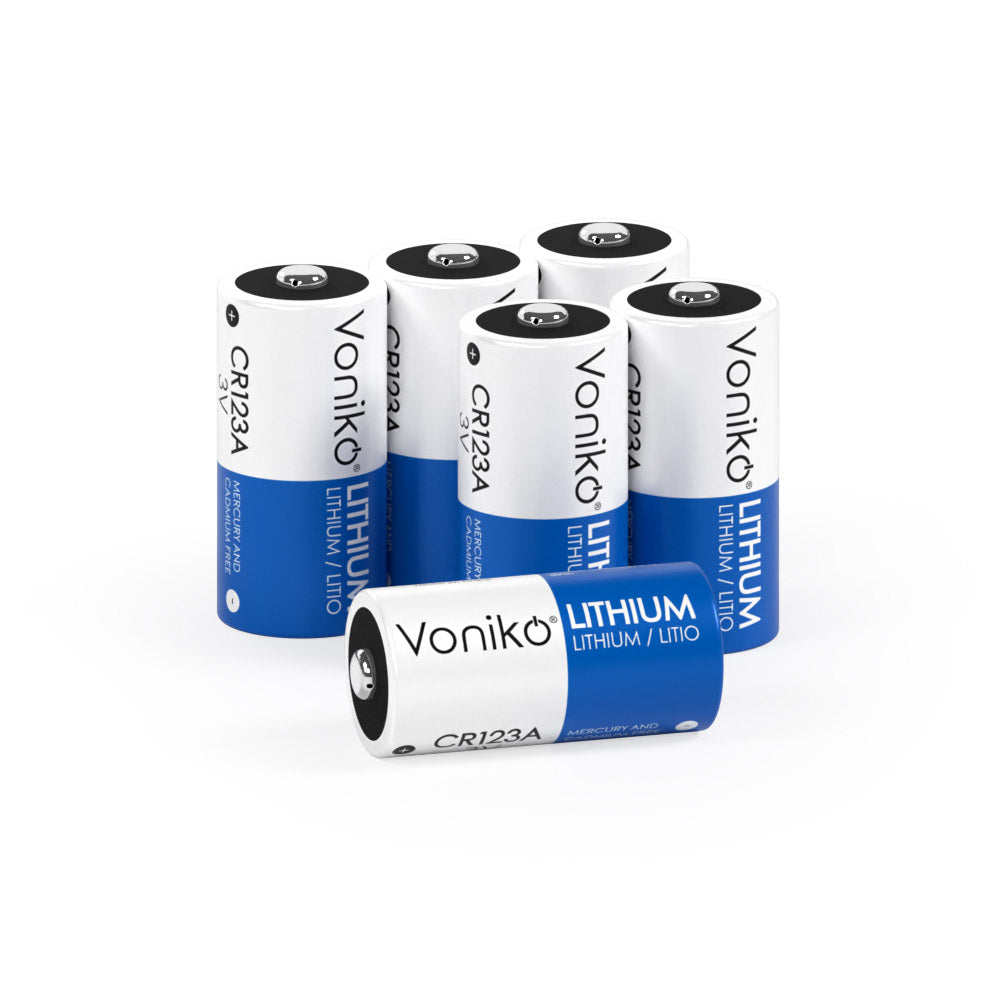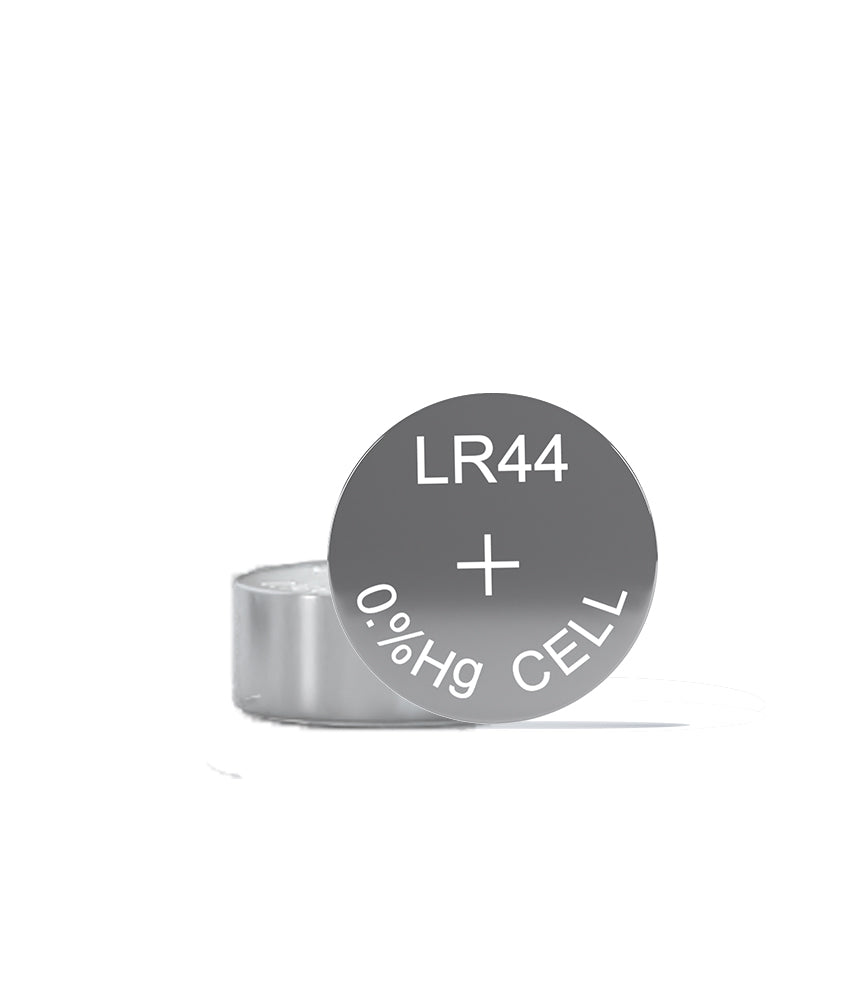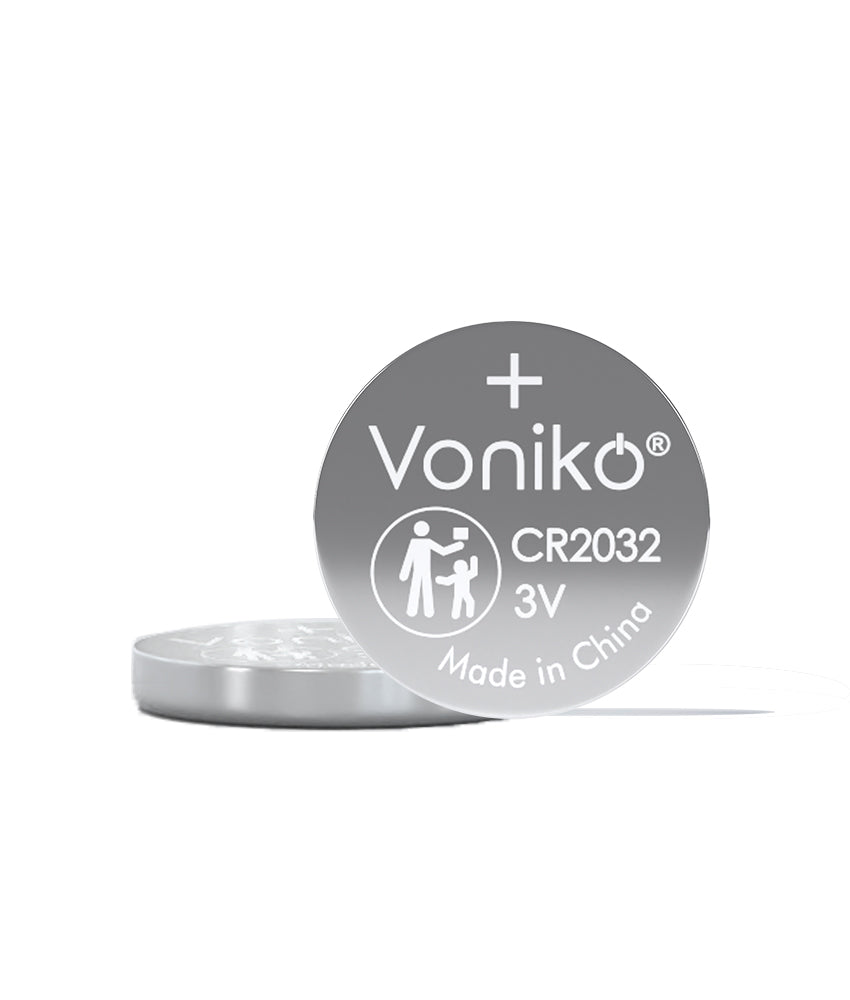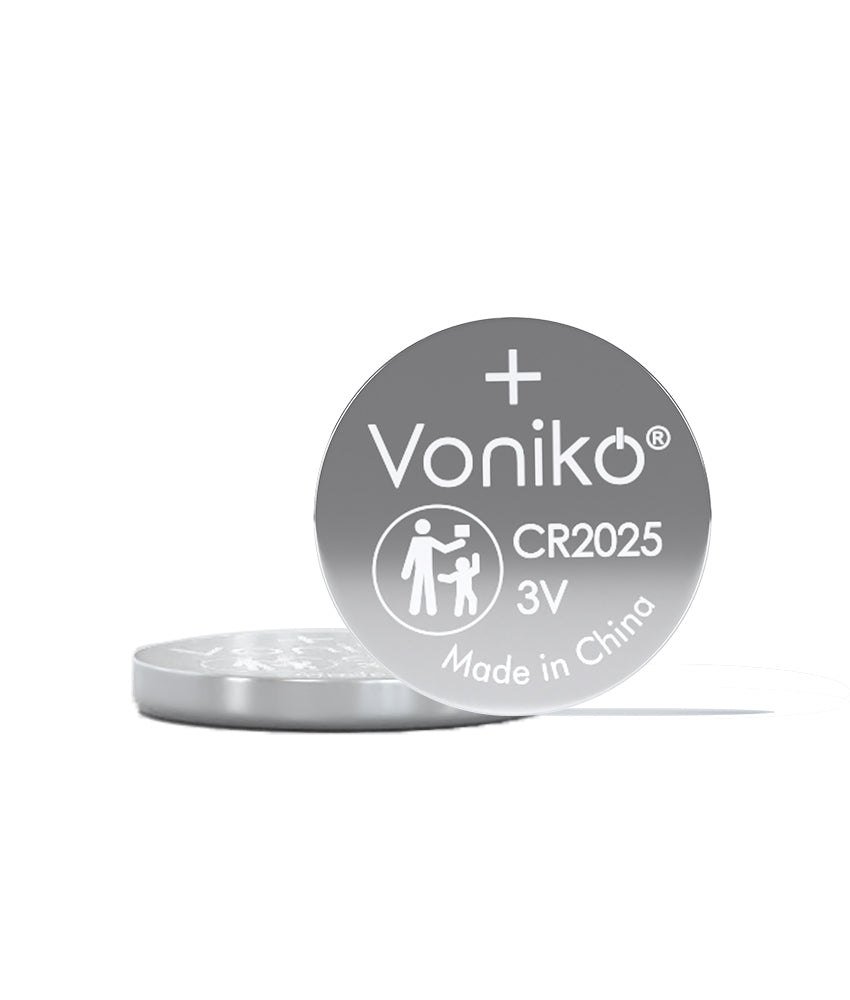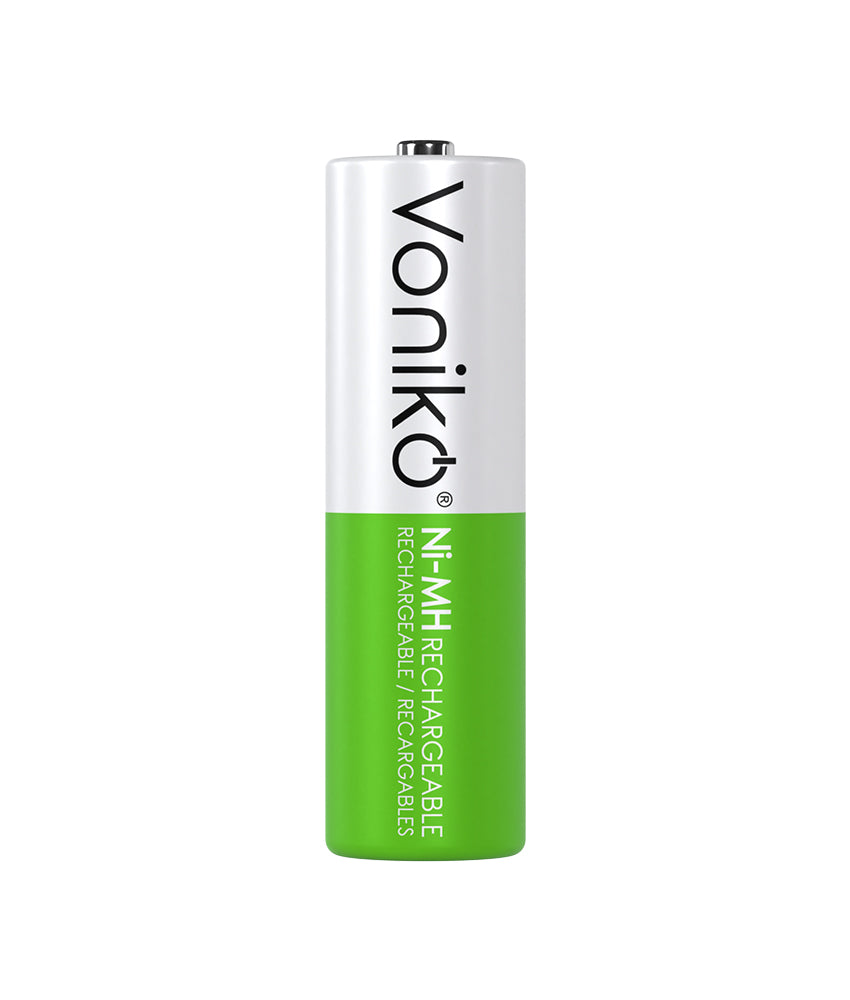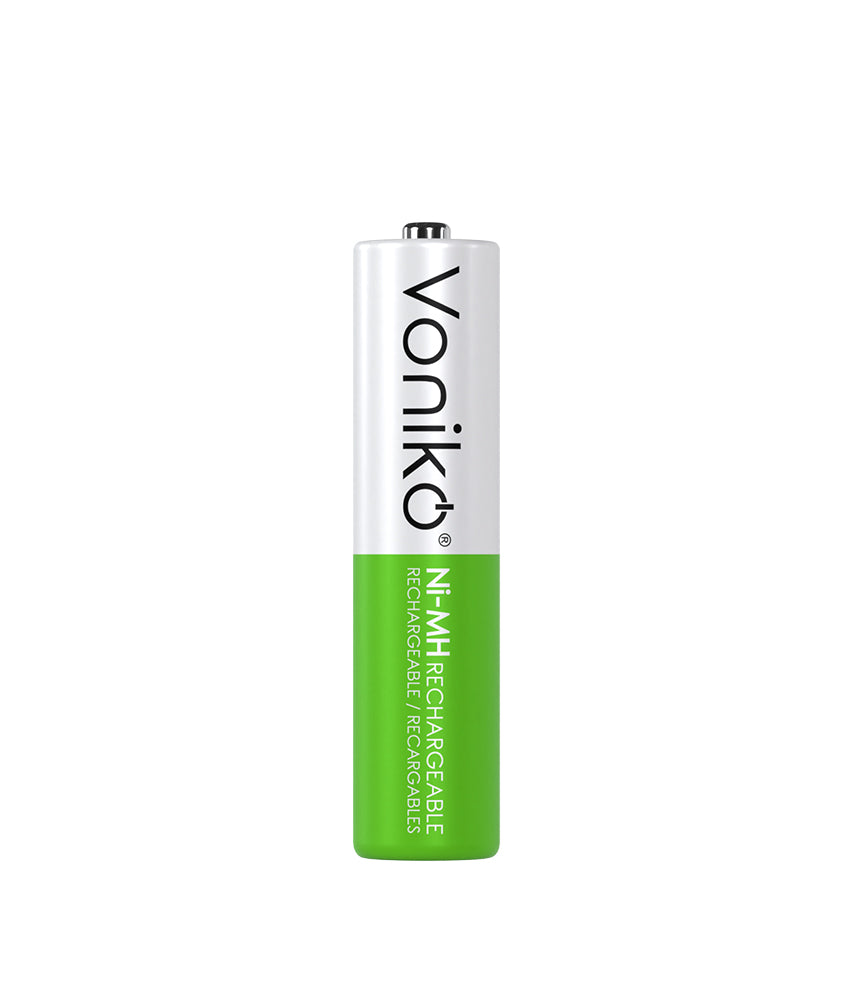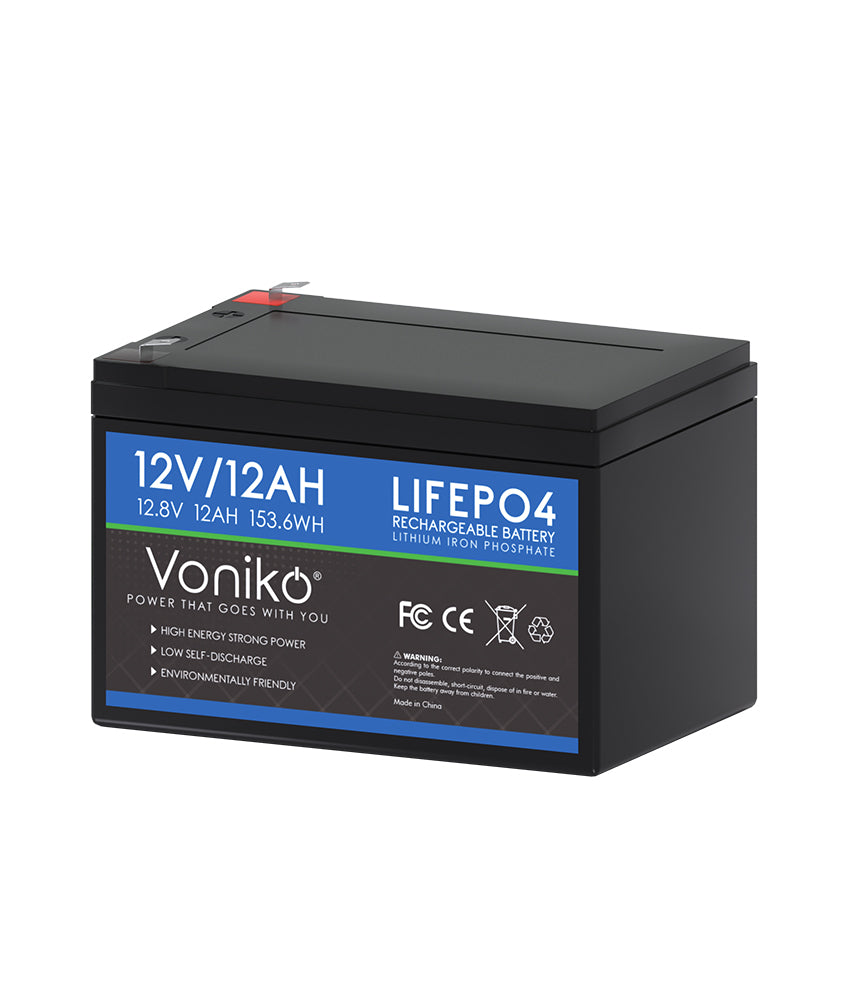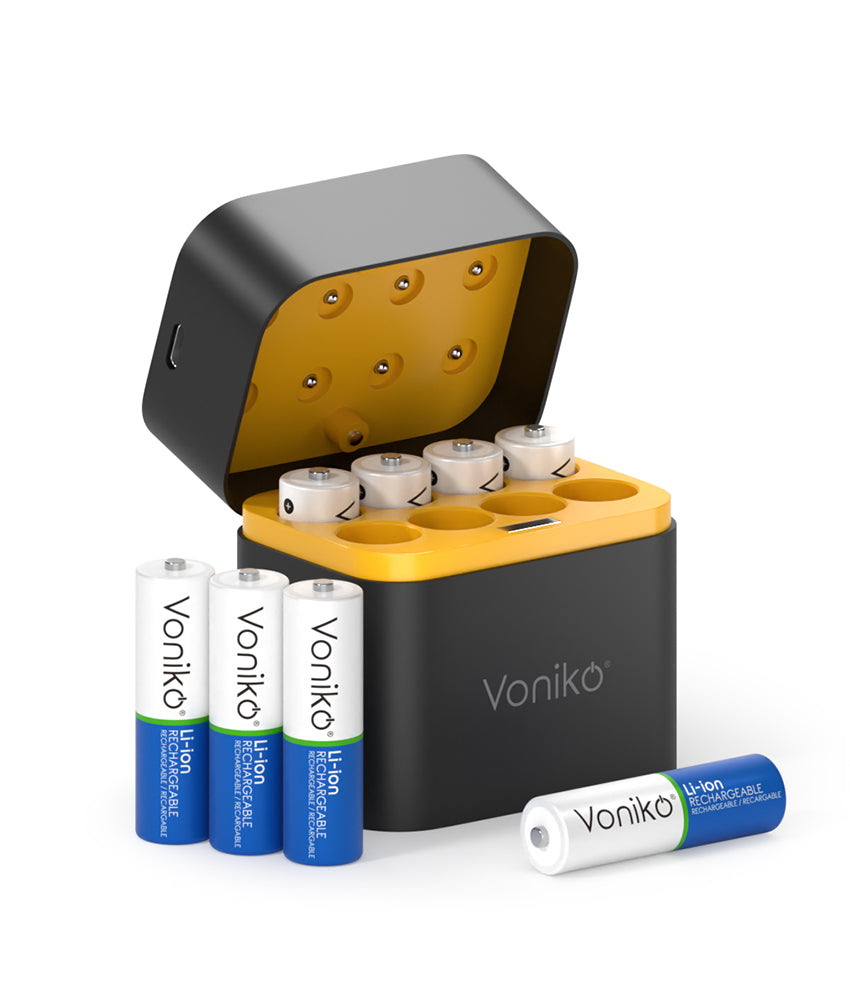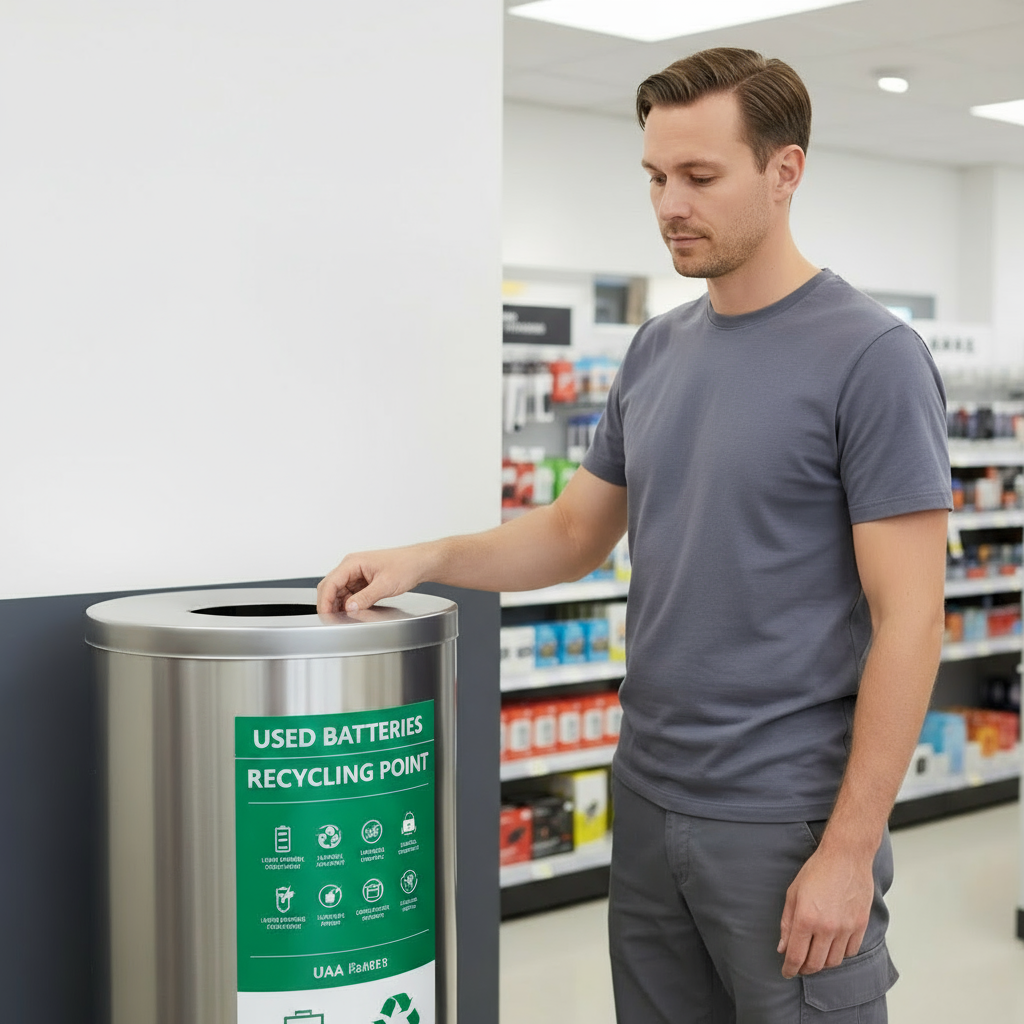When you're standing in the battery aisle trying to figure out which batteries to buy for your flashlight, remote, or kid's toy, the choice between lithium and alkaline batteries can feel confusing. We get it. With so many options out there, it's tough to know which one gives you the best bang for your buck. That's why we've put together this straight-talk guide to help you make the right choice.

At Voniko Batteries, we've been in the battery game for over 25 years, and we've seen firsthand how the right battery can make all the difference. Whether you need power for everyday household items or high-tech gadgets, knowing the difference between these two battery types will save you time, money, and a whole lot of frustration.
What Are Lithium and Alkaline Batteries?
Before we get into the nitty-gritty, let's break down what we're actually talking about. Lithium and alkaline batteries are made of different materials and are constructed differently, which affects their performance in various uses.
Standard alkaline batteries are manganese/zinc galvanic batteries with an alkaline electrolyte. In most cases, alkaline batteries have a cathode of manganese dioxide (MnO2) with graphite-containing material and an anode of zinc paste (Zn). Potassium hydroxide (KOH) is used as the electrolyte. They're the batteries you've probably been buying for years – the ones that power your TV remote, wall clock, and smoke detectors.
Lithium batteries, on the other hand, use lithium metal or lithium compounds. They come in different types including lithium iron disulfide (for disposable batteries) and lithium-ion (for rechargeable ones). These batteries pack more punch and are commonly found in cameras, medical devices, and smart electronics.
Performance Differences: Which Battery Lasts Longer?
Here's where things get interesting. Lithium batteries last much longer than alkaline batteries—about 8 to 10 times longer. They also keep a steady power level as they are used, while alkaline batteries slowly lose power over time. This makes lithium batteries better for devices that use a lot of energy.

Think about it this way: if you're using a digital camera or a high-drain device like a GPS unit, alkaline batteries might die out quickly because they can't keep up with the power demands. Lithium batteries, however, deliver consistent voltage throughout their entire life. Lithium batteries maintain their full voltage almost at the end of their charge life, while Alkaline batteries reduce their voltage output throughout their performance.
Here's what this means for you:
- Your high-drain devices will work better and longer with lithium batteries
- You won't experience that annoying power drop-off that happens with alkaline batteries
- Devices like flashlights stay bright until the battery is nearly dead
Temperature Performance: Which Battery Handles Extreme Weather?
Lithium batteries can withstand extremely low temperatures so they can work without failing in a freezing climate. This makes them ideal for outdoor applications. If you live somewhere with harsh winters or need batteries for outdoor gear, this is a big deal.
Alkaline batteries perform best within a temperature range of 20°C to 25°C (68°F to 77°F). Extreme temperatures can negatively affect their efficiency and lifespan. When it gets cold, alkaline batteries slow down because the chemical reactions inside them can't happen as fast. When it gets hot, they can leak or even rupture.
Lithium batteries don't have these problems. They keep working in freezing weather and handle heat much better, making them perfect for:
- Outdoor cameras and trail cams
- Emergency flashlights stored in your car
- Devices used in extreme climates
- Winter sports equipment
Cost Comparison: Are Lithium Batteries Worth the Extra Money?
Let's talk money, because that's what most people care about when they're buying batteries. Initial prices can be deceiving. Yes, alkaline batteries are cheaper upfront, but don't let that fool you. Lithium batteries, although more expensive initially, provide longer-lasting power, making them more cost-effective in the long run.
Lithium batteries may cost 5 times more than alkaline batteries, but lithium batteries last 8 or even 10 cycles longer than alkaline batteries. So yeah, you'll pay more at the register, but you'll replace them way less often.
Here's a simple breakdown:
| Feature | Alkaline Batteries | Lithium Batteries |
|---|---|---|
| Upfront Cost | $0.50 - $1.00 per AA | $2.50 - $5.00 per AA |
| Lifespan | 300 cycles (if rechargeable alkaline) | 1,000+ cycles (rechargeable lithium) |
| Replacement Frequency | High | Low |
| Long-term Value | Lower | Higher |
You're likely to change alkaline batteries about three times as often as lithium ones. That's more money spent, more batteries to dispose of, and more time wasted.
For our alkaline batteries, we focus on delivering reliable, cost-effective power for everyday devices where you need affordable performance without breaking the bank.
Shelf Life and Storage: Which Battery Lasts Longer on the Shelf?
If you're the type who likes to stock up on batteries (and honestly, who isn't these days?), shelf life matters. Lithium batteries have a longer shelf life, typically lasting up to 10 years compared to the 2-3 years for alkaline batteries.
This is huge if you're:
- Building an emergency kit
- Buying batteries in bulk
- Storing backup batteries for critical devices
- Planning ahead for seasonal needs
When discussing battery storage: alkaline vs. lithium, lithium batteries clearly come out on top. They retain their charge for a much longer period, even when not in use. This makes them the superior choice for long-term storage and emergency preparations.
Weight Matters: Lithium Batteries Are Lighter
Lithium batteries are lighter than alkaline batteries, so they offer an advantage when used with portable devices, especially cordless power tools. If you're hiking, traveling, or using handheld devices for extended periods, those extra ounces add up fast.

Lithium batteries are approximately 30% lighter than equivalent alkaline batteries. This weight advantage makes lithium batteries preferable for portable devices, especially those carried for extended periods like headlamps, cameras, and cordless power tools.
Environmental Impact: Which Battery Is Greener?
Let's be real – batteries aren't exactly great for the environment, but some are better than others. Lithium batteries are generally more environmentally friendly as they're often rechargeable and recyclable, with more than 90% of their raw materials being reusable. Alkaline batteries, being typically disposable, contribute more to environmental waste due to the need for frequent replacement.
That said, both types need to be disposed of properly. Never just toss them in the regular trash. Look for battery recycling programs in your area or drop them off at designated collection points.
Which Battery Should You Choose?
Lithium and lithium-ion batteries can withstand low- and high-temperature variances and work well outdoors, whereas alkaline batteries are best for electronics that require low or medium power.
Choose alkaline batteries for:
- Remote controls
- Wall clocks
- Flashlights (low to moderate use)
- Toys
- Smoke detectors
- Other low-drain devices you use occasionally
Choose lithium batteries for:
- Digital cameras
- High-powered flashlights
- Wireless gaming controllers
- GPS devices
- Medical equipment
- Outdoor gear used in extreme temperatures
- Devices where you can't easily change batteries
Compared to lithium batteries, alkaline batteries are a good choice because they're cheaper, easy to find, and work well in everyday items like remotes, clocks, and flashlights. They're safe to use, especially in basic devices, and can sit on a shelf for years without losing much power. If you don't need a lot of energy or use the device often, alkaline batteries are a reliable and affordable option.
Common Uses: Where Each Battery Type Shines
AA batteries are used in flashlights, cordless phones, wall clocks, computer mouse, small kitchen appliances, gaming controller, etc. AAA batteries are used in small electronics like remote controls, digital cameras, calculators, small toys, small flashlights, thermometers, etc.

The real trick is matching the battery to the job. Using lithium batteries in a TV remote is probably overkill – you're spending extra money for features you don't need. But using alkaline batteries in a professional camera? You'll be swapping them out constantly and missing important shots.
The Bottom Line
Both lithium and alkaline batteries have their place in your home. We can use a lithium battery as a high-performing alternative to a standard alkaline battery in many cases. However, the benefits come at a cost: Lithium is a more expensive technology, which means a higher price point.
For most everyday devices around the house, alkaline batteries from Voniko offer excellent value and reliable performance. For your high-drain gadgets, outdoor equipment, or devices used in extreme conditions, lithium batteries are worth the investment.
The key is understanding what you need and buying accordingly. Don't overspend on features you won't use, but don't cheap out when performance really matters. Your devices (and your wallet) will thank you.
FAQs
Can I replace alkaline batteries with lithium batteries in any device?
Most devices that use alkaline batteries can also use lithium batteries, but always check your device's manual first. Some devices are specifically designed for one type or the other, and using the wrong battery could damage your device or void the warranty.
Do lithium batteries really last 10 times longer than alkaline?
In high-drain devices, yes – lithium batteries can last 8 to 10 times longer than alkaline. However, in low-drain devices like a TV remote, the difference won't be as dramatic. The real advantage shows up when your device needs a lot of power quickly.
Why do my alkaline batteries leak but lithium batteries don't?
Alkaline batteries are more prone to leaking, especially when they're old, overcharged, or exposed to extreme temperatures. The chemicals inside can break down and seep out. Lithium batteries have better sealing and are less likely to leak, which is another reason they're great for long-term storage.
Are rechargeable lithium batteries better than disposable alkaline?
Rechargeable lithium-ion batteries can be recharged hundreds or even thousands of times, making them way more cost-effective over time. If you use batteries regularly in the same devices, rechargeable lithium is absolutely the way to go. You'll save money and reduce waste.
Which battery type is safer for kids' toys?
Both are generally safe when used properly, but alkaline batteries are typically recommended for kids' toys because they're less expensive and easier to replace. However, if the toy gets heavy use or you want batteries that won't need changing as often, lithium batteries work great too. Just make sure all battery compartments are secure and keep spare batteries away from small children.

